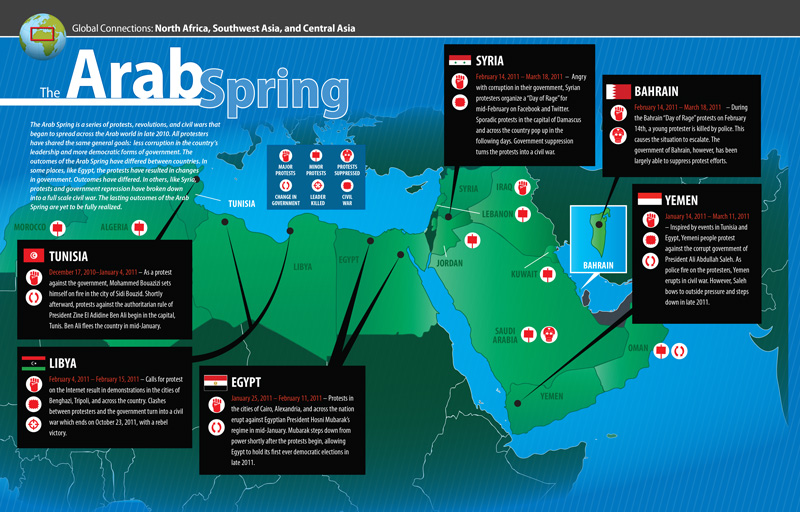

Last summer, btw reported on the appointment of Egypt’s Interim President following the ouster of former President Mohmmed Morsi. At that time, Hazem Beblawi was also made temporary prime minister. While the county’s president holds most of the government’s powers, the prime minister handles the day-to-day affairs of the economy.
Last week, Beblawski resigned abruptly and unexpectedly. He was quickly replaced by former Housing Minister, Ibrahim Mahlab. After taking office, Mahlab appointed a 31-member cabinet–a body of advisors who head up various departments of the government. Egypt will continue this type of “caretaker government” until it holds new elections later this spring.
A Brief, Recent History
Before 2011, presidential elections in Egypt were usually full of corruption accusations and charges of vote rigging. Instead of a race between candidates, the elections were a Yes/No vote for only one person, and it was sometimes claimed that the government threatened those likely to cast a “no” vote. Honsi Mubarak won five elections and was Egypt’s president between 1981 and 2011, making him the longest-serving in the nation’s history.
Fed up with the corruption, oppression and a bad economy, millions of citizens came together in January 2011 to voice their opposition and demand the overthrow of Mubarak and his regime. They wanted real democratic elections with more than one candidate. Nearly 900 people were killed in the uprising and another 100,000 reportedly injured. Faced with choice of a forced resignation or an open-ended campaign of civil disobedience, Mubarak stepped down. He turned over his power to the Supreme Council of the Armed Forces (SCAF).
The Arab Spring
The uprising in Egypt was part of a larger movement among many of the dictatorship governments in Northern Africa and the Arabian Peninsula. Collectively, this period of government overthrow has been called the Arab Spring. Popular protest movements in Syria, Libya, Yemen, Tunisia, and Bahrain all resulted in government change. Some of these actions have been more stable than Egypt.

In the first presidential election following the 2011 Egyptian revolution, Mohmmed Morsi beat out four other candidates and was sworn into office. He had promised to head a government for all Egyptians, but critics say Morsi abused his power while the country suffered continual economic, security and diplomatic woes. The final straw came in the fall of 2012, when Morsi passed a constitutional declaration granting himself unlimited powers. The anti-government protests re-flared, involving more than 300,000 people. Through a military coup d’etat. Adly Mansour became Interim President and Hazem Beblawi became Interim Prime Minister, until his recent resignation.
Moving Forward
In his first televised speech, Mahlab pledged to restore stability to the Egypt. This will be a tough challenge given the string of terrorist attacks in the region amid a growing insurgency. There have also been a large number of labor strikes from groups like police officers, doctors and textile employees. Mahlab urged protestors to cease their actions so that the new government could have space to develop and rebuild.
A new constitution was approved in January 2014. It states that elections must take place by mid-April. Current interim president Mandour has already stated that he will not run for the presidency. Hamdeen Sabahi, a candidate in the 2012 election officially announced his candidacy. However, the front-runner is the current Defense Minister, Field Marshal Abdel Fattah el-Sisi. As the head of the Egyptian Armed Forces, he played a large role in removing Morsi from power and is very popular with the Egyptian people.
